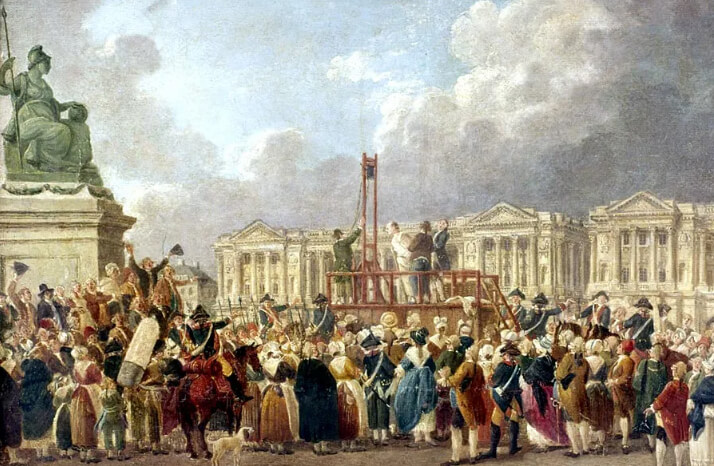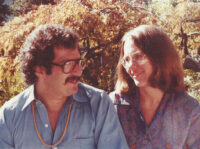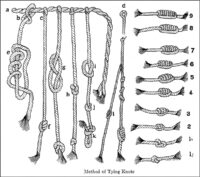I’ve been thinking about the French Revolution, how it led to the bloody Reign of Terror that killed tens of thousands and eventually to the tyranny of Napoleon. Some view such revolutions through the lens of class struggle: the inevitable revolt of an oppressed and beleaguered underclass against an upper class that callously wields power over them. There’s also the psycho-historical view, that whatever the existing socio-economic and political conditions may be, people are fundamentally emotional animals unable to fully overcome their violent, predatory nature. Maybe both views are true.
The United States of America is breaking apart under the pressure of uncontrollable emotion. Our country is widely considered by many to be among the best in the world, with a strong economy and high living standards; nearly everyone can enjoy cell phone service, reliable electricity, watch the Super Bowl on television, have hot and cold running water, and shop at supermarkets filled with products from all over the globe. Nonetheless, anger, greed, depression, envy, addiction, loneliness, and anxiety are tearing us apart. Welcome to the Emotional States of America.
In our political theatre, Donald Trump stars as a sociopathic ex-President who keeps tens-of-millions of followers in sway with his bizarre emotional swings. A sense of powerlessness has taken hold – cultural, technological, environmental, social, and material change is happening so rapidly that it’s impossible to keep up with it. Sociopaths with power and those who seek power for selfish reasons seek to escape from the cultural limitations we’ve created to contain their emotions and behavior; they seek power not to be free, but to be wild.
It’s notable that prior to January 6th, 2021, Trump’s clarion call to his followers to come to Washington, D.C. to stop the peaceful transfer of power was “Be there. IT WILL BE WILD.” And wild it was, an insurrection of primitive violence and unbridled emotion that shocked the nation and the world.
It is humankind’s wild nature – our propensity to kill, covet, and steal – that underlies the moral precepts and prohibitions articulated in all major religions of the world. When uncontrolled, our wild emotions wreak havoc. In the natural world, such wildness is normal; our evolution has been predicated on predation: seeking, capturing, and consuming other forms of life to sustain our own. In this sense, the whole of civilization – organized economies, industrialized food production, cultural traditions, bodies of law – may be viewed as efforts to overcome our wild predatory nature, but with obviously mixed results.
Early psychology focused on the effects of repression of emotion and biological drives as primary drivers of human behavior. Repression, the theory held, results not in the elimination of wildness, but rather its sublimation into other less destructive forms, such as art, sport, and even politics. Enlightenment thinking, the power of reason over emotion, was akin to religion’s effort to stem the human tide of violence. It too has only displayed mixed results; emotions are simply too powerful to contain fully, and as social pressures increase, wildness emerges.
For some, rising emotionality presents an opportunity to further inflame it in others for personal gain. In this way calls for revenge, sabotage, and subversion enlist not rationality but wildness to a cause. In the end, however, the guillotine is kept so busy that no one can escape it. This is the lesson of the French Revolution’s Reign of Terror and the rise of tyranny, a lesson best not forgotten.






Be First to Comment